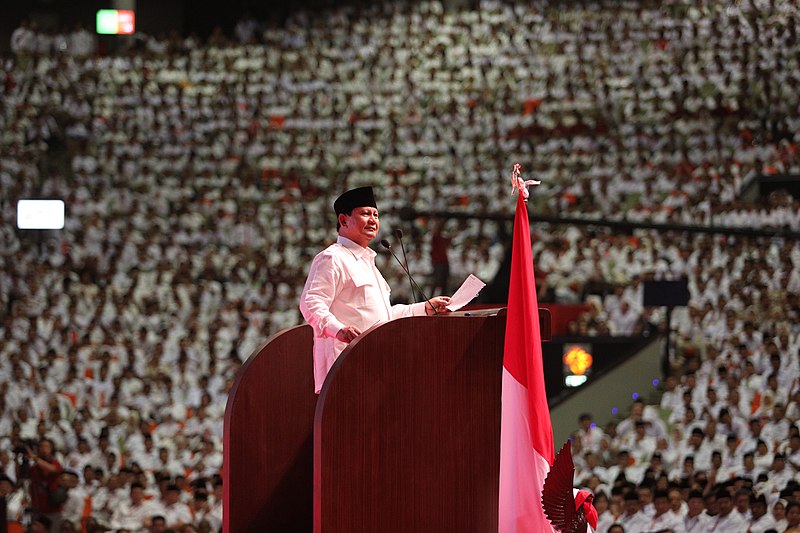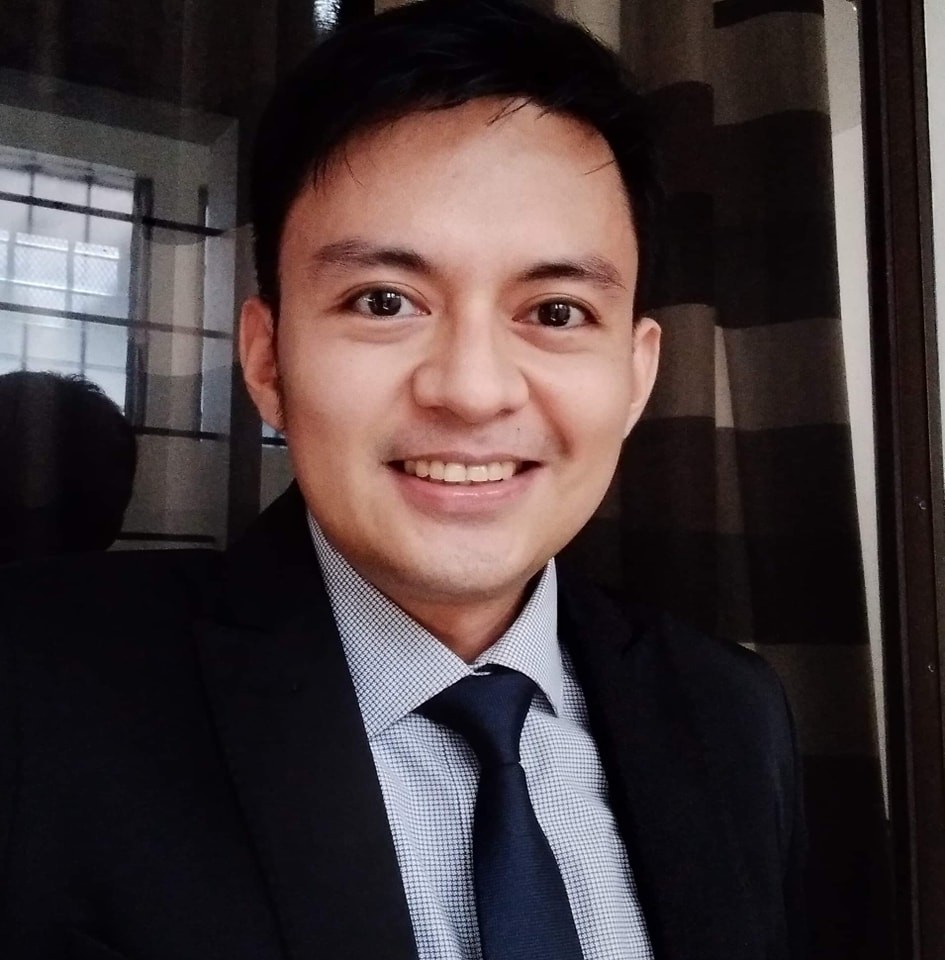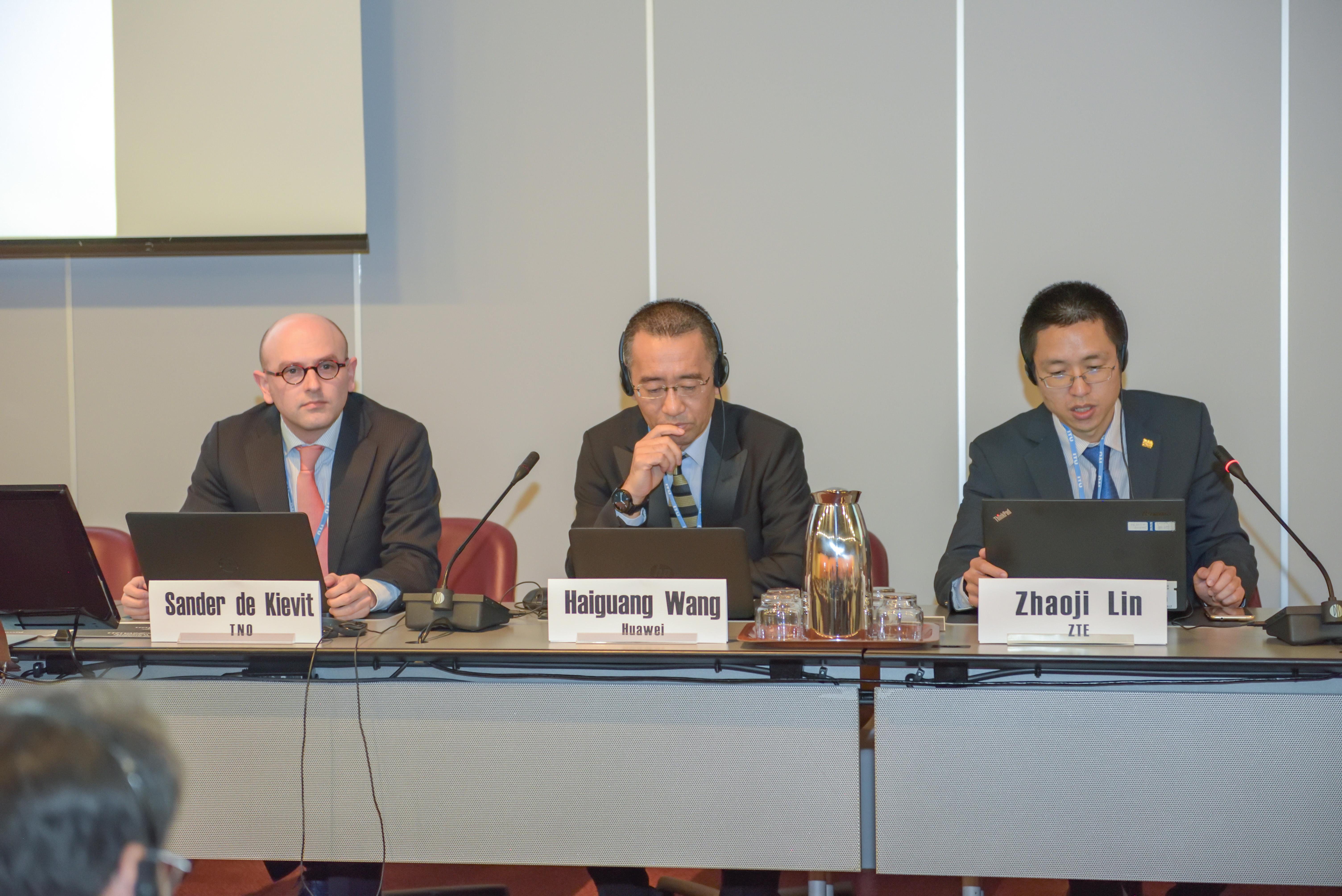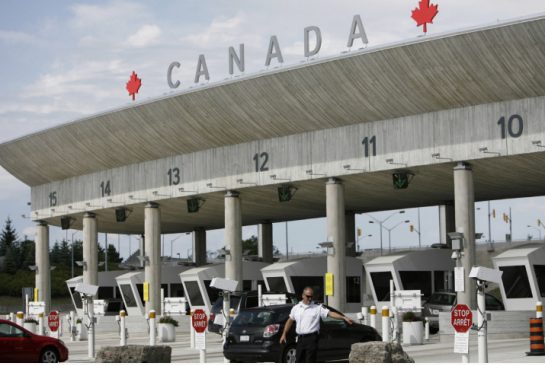Abstract:
Indonesia’s election commission has confirmed that Minister of Defence Prabowo Subianto will be the next President of Indonesia. What could possibly remain and change in Jakarta’s foreign policy? In this article, Program Editor Mark Davis Madarang Pablo analyzes the probable sets of economic and security policies that Subianto might pursue against the backdrop of growing geoeconomic and geopolitical rivalry between NATO member-state, the United States, and the People’s Republic of China (PRC) in the Indo-Pacific region.
Snapshot of Indonesia’s National Elections
Fondly nicknamed the “TikTok General” due to his viral “gemoy” (chubby, cute and lovable) images and jovial “joget” (dancing) moves in the popular social media app, Minister of Defence Prabowo Subianto (Gerindra Party) officially won the presidential elections in Indonesia, winning 59 percent, or more than 96 million votes. He is far ahead of his two other political rivals, former Jakarta governor Anies Rasyid Baswedan (independent candidate) who is on the second spot, garnering 25 percent, or nearly 41 million votes, and former Central Java governor Ganjar Pranowo (Indonesian Democratic Party of Struggle) who trails behind at the third spot, with 16 percent, or 27 million votes. Prabowo is poised to lead Indonesia, the world’s fourth most populous nation, third largest democracy, and the leading economy in Southeast Asia. During a televised speech, the 72-year old ex-special forces military commander remarked that: “We should not be arrogant. […] We still have to be humble. This victory must be a victory for all Indonesian people.”
Building on the Legacy of Jokowi Widodo
With Subianto to be inaugurated in October this year, he will take the helm of Jakarta’s political leadership at a critical historical juncture when the country is laying the groundwork for its sustained economic development at home while the so-called “managed competition” between the United States and the People’s Republic of China (PRC) is escalating in the Indo-Pacific region. Under the outgoing President Jokowi Widodo, Indonesia maintained its long-standing “bebas aktif” or independent and active foreign policy albeit in two stages: During his first five-year term (2014 – 2019), he articulated the vision of Indonesia as a Global Maritime Fulcrum (GMF). According to Intang Arifia, author from Airlangga University, the GMF is an outward-looking, geostrategic-driven foreign policy doctrine that seeks to leverage Jakarta’s unique geography to become an active facilitator of international trade between the Indian Ocean and Pacific Ocean, guarantor of maritime security and law, and nexus between islands and maritime resources. It envisions Indonesia playing a larger, more constructive role as a balancing, pacifist actor in the preservation of the rules-based order . Soon after, regional and extra-regional state actors sought to align their grand strategies with the nebulous strategic doctrine from Jakarta: Chinese President Xi Xinping promoted synergy between Beijing’s Belt-and-Road Initiative (BRI) and the GMF, especially on policy, infrastructure, trade, financial, and people-to-people connectivity. Meanwhile, United States President Barack Obama affirmed the strategic convergence of Washington’s Indo-Pacific rebalancing with the GMF, particularly on climate resilience, sustainable development, non-traditional security threats, public health, and maritime security.
However, during Widodo’s second five-year term (2019-2023), his GMF aspirations fizzled out. International Relations expert Joko Susanto explained that three main factors led to its untimely demise: First, structural factors include having an incoherent maritime policy, fragmented maritime bureaucracy, low export quantity relative to neighboring countries such as Malaysia or Thailand, and minimal fisheries and marine sectors. Second, geopolitical factors encompass physical infrastructure gaps, limited capital allocation, and conflicting political views within the maritime sector. Third, cultural factor pertains to the country’s path dependence towards insular foreign policy. The GMF later paved way for a more inward-looking, geoeconomic-driven foreign policy. Dubbed by Ahmad Rizky Umar, author from the Lowy Institute, as the “Jokowi Doctrine”, such policy gives emphasis on strengthening domestic state capacities, and reforming the Western-dominated global economic order to give greater voice to and accommodate the growing interests of the newly emerging economic powers in the Global South. Thus, Widodo embarked on a massive infrastructure development program, particularly in the transportation, telecommunications, energy, and agricultural sectors aimed at enhancing the physical/digital connectivity and spurring economic development throughout the archipelago. During his administration, Jakarta assumed the presidency at G20 in 2022, and identified three (3) priority sectors for sustainable post-COVID-19 recovery: strengthening of the global health architecture, digital transformation; and transition to clean energy. Then a year after, Indonesia assumed the ASEAN chairmanship in 2023 wherein it reasserted the centrality of the regional bloc as the platform for tackling issues and challenges of common interest, emphasized the need to maintain peace and stability, and highlighted the need to capitalize on the regional bloc’s above-average economic growth.
Unpacking Possible Continuities and Changes in Prabowo Subianto’s Foreign Policy
During the election campaign, Subianto also affirmed his commitment to “bebas aktif” which could be interpreted as relying on the PRC to support Indonesia’s economic development while strengthening security ties with the United States to diversify external support for its national defence. Having projected himself as a candidate for continuity, he is inclined to sustain certain elements of the developmentalist foreign policy of the “Jokowi Doctrine.” Under the incumbent administration of Widodo, Indonesia – PRC bilateral economic relations are at an all-time high: Currently, Beijing is Jakarta’s top trading partner, with trade amounting to more than US$130 billion annually in 2022. Beijing is also Jakarta’s second-largest investor in 2022 at US$8.2 billion, only behind Singapore at US$13.3 billion. Given the breadth and depth of PRC’s trade and investment relations with Indonesia, analysts such as Faisal Nurdin Idris from UIN Jakarta believe that there will be no dramatic change in Jakarta’s economic relations with Beijing, which means that Subianto is highly likely to maintain a pragmatic approach in this respect. Once in power, however, he must proactively address the alleged malpractices of some Chinese business entities that cause environmental harm, such as the Tsingshan Group, Huayou Group, and Zhenshi Group in Jakarta’s nickel mining industry in order to protect the natural environment, contain the spread of anti-Chinese sentiment, and maintain his political support base within the Indonesian society.
Furthermore, Subianto is expected to follow through on the latest round of investment packages that Widodo struck with the PRC, such as the US$44.89 billion worth of investment pledge made by President Xi Xinping in July 2023, and the US$21.7 billion committed by Premier Li Qiang during the three-day ASEAN Summit in September 2023.This is to sustain the momentum of constructing big-ticket infrastructure items under the BRI, such as the US$7.3 billion Jakarta – Bandung High Speed Railway, and Cirata, Southeast Asia’s largest floating solar power project, as well as modernizing other critical sectors of the domestic economy, namely: agriculture, fisheries, industry, e-commerce, enterprise support, and science and technology. Furthermore, in support of Widodo’s initiative to transfer Indonesia’s capital city from Jakarta in Java to Nusantara in Borneo, Subianto is highly likely to continue courting Chinese investors to participate in urban development and shoulder a significant portion of the US$31 billion in expected construction costs.
His policy on nickel mining—a crucial element in the mass production of electric vehicles—would be of vital interest to foreign investors. Indonesia is the world’s largest nickel producer, with about 21 million tons of nickel reserves. One may anticipate that he, together with his running mate and Widodo’s eldest son, Vice President-elect Gibran Rakabuming Raka will maintain Widodo’s downstreaming policy, which calls for domestic processing of nickel to upgrade its value within the global production networks. However, it remains to be seen if he and Gibran will go further, work with other nickel-producing countries, and implement the suggestion made by Indonesia’s Investment Minister Bahlil Lahadalia to Canada’s International Trade Minister Mary Ng on the fringes of the G20 Summit in Bali in November 2022, which calls for the establishment of an “OPEC-like” multilateral organization. The envisioned grouping of states would coordinate the supply and price of nickel in the global market. This is especially relevant given the expected surge in demand for greener systems and modes of transportation in the American, European, and Chinese markets in response to the climate crisis.
While Subianto is highly likely to be a champion of the “Jokowi Doctrine” on the economic front, his familial-political roots as former President Suharto’s son-in-law and military background as former lieutenant-general and commander of Kopassus (Indonesian Army Special Forces) during the New Order provide the compelling argument that he will most probably adopt a more realist approach to foreign policy, particularly on the security front. During one of the presidential debates, he quoted the Athenian historian Thucydides: “The strong do what they can and the weak suffer what they must.” Arguably, he could be more inclined than Widodo in flexing military muscle to assert Jakarta’s political sovereignty and assuming greater regional leadership to tackle security issues of common interest.
For example, the Natuna Sea dispute brought about by Beijing’s invalidated nine-dashed line claim over the entire South China Sea is a potential flashpoint that poses a significant challenge to Indonesia’s maritime sovereignty and entitlements along such vital global maritime artery. Here, any spike in operational tempo by the People’s Liberation Army Navy, Chinese Coast Guards, and Chinese maritime militia around the Natuna Island, or worse, any occurrence of incidents with Indonesian military, commercial, and/or civilian vessels at sea, could drastically alter Jakarta’s risk calculus towards Beijing—one which may have negative spillover effect on the domestic economy. The PRC’s increasingly aggressive behavior in staking its expansive territorial and maritime claims in the hotly contested South China Sea (including the Natuna Sea), as shown during the standoff between Indonesian warships and Chinese Coast Guards in 2020, may provide the impetus for Subianto to forge closer ties with the United States—but below the threshold of entering into a formal security alliance similar to that which the United States has with Japan, South Korea and the Philippines—in support of its own domestic military modernization and external power projection. It may also prompt a radical rethinking within Prabowo’s economic bureaucratic elite as to whether or not Indonesia ought to diversify its foreign trade and investments to lessen economic dependence on the PRC.
To recall, Subianto oversaw the strengthening of United States – Indonesia security ties, particularly on military procurement, joint exercises, maritime domain awareness, and maritime law enforcement during his stint as Defence Minister. Last August 2023, he witnessed the signing of a memorandum of understanding on the purchase of 24 F-15EX—the most advanced version of the F-15 by Boeing. Then in November 2023, he was part of the delegation that elevated Indonesia – United States ties to Comprehensive Strategic Partnership which aims to deepen the relationship across four core areas of convergence: regional security, economic partnership, climate crisis, and people-to-people ties. With this new upgrade in bilateral relations, it is highly likely that Subianto will prioritize the expansion of Garuda Shield Exercises involving the Indonesian National Armed Forces (TNI), the US Indo-Pacific Command (USPACOM), and partner nations which are aimed at developing warfighting capability and readiness, strengthening interoperability, and cultivating mutual trust and cooperation among the participating member-states. This could possibly bolster Jakarta’s confidence in further assuming greater leadership role within ASEAN, as shown during the ASEAN Solidarity Exercise 2023 (ASEX 2023), the regional bloc’s first-ever joint military exercise aimed at enhancing the regional militaries’ interoperability for Humanitarian Assistance and Disaster Relief (HADR), maritime security, search and rescue, medical evacuation, and anti-piracy. Lastly, he may follow through on the bilateral Work Plan on Maritime Security signed with the US State Department’s Bureau of International Narcotics and Law Enforcement (INL) in November 2023. The work plan seeks to enhance Indonesia’s maritime domain awareness and maritime law enforcement capabilities to address non-traditional security threats in the maritime domain, such as: illegal, unreported and unregulated (IUU) fishing, smuggling, piracy, illegal immigration, and terrorism.
Conclusion
The anticipated rise of the “TikTok General”, President-elect Prabowo Subianto, into the upper echelon of power in Indonesia opens up a new global political conversation and debate on what his future administration’s foreign policy might look like, and how this might impact great-power geoeconomic and geopolitical dynamics between the United States and the PRC. Having affirmed his commitment to Indonesia’s long-standing “bebas aktif” or independent and active foreign policy during the election campaign, it is highly likely that he will amplify President Joko Widodo’s current strategy of gravitating towards Beijing for Jakarta’s economic development, and Washington for the diversification of support for its national defence. It remains to be seen whether or not Subianto will be able to display a similar, if not greater, level of statesmanship and effectively manage such delicate balancing act. Also, the world will watch closely the extent to which his future administration is able to harmonize his country’s developmental pursuits with his own realist foreign policy inclinations, and maintain the country’s strategic non-alignment in the face of a progressively revisionist PRC and an increasingly wary United States.
Photo: Gerindra Party General Chair Prabowo Subianto delivering a speech at the Gerindra Party National Working Meeting held at Sentul, West Java, Indonesia (2017) by Prabowo Subianto’s personal photographer team via Creative Commons Attribution-Share Alike 4.0 International License.





